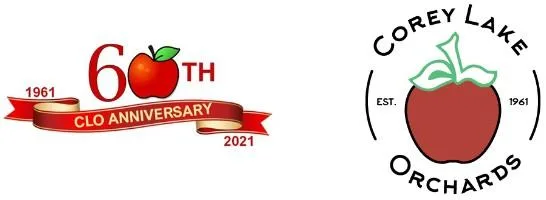Corey Lake Orchards engages in a daily battle with insects, weeds, diseases and the weather – and sometimes they win! Due to the number of acres in fruit and vegetable production we do not grow organically, but we use best practices for growing. We use an integrated pest management system which is a combination of cultural, mechanical, biological, and chemical controls to keep pests and weeds at bay. We also are certified in MAEAP, the Michigan Agriculture Environmental Assurance Program, that demonstrates our desire to be good stewards of our land.
Below, farmer Beth describes our Pesticide Policies and Practices for those wanting more information.
As the grower, owner, mother, grandmother, and someone who cares deeply about my own health and those of others, I have made food safety the number one priority on our farm.
We use pesticides and fertilizer on this farm when needed. We also use many cultural tools to minimize the need for pesticides (mowing, hoeing, cultivating, hand pruning and thinning, etc.).
All chemicals are registered by the EPA and the state before they can be sold. The registration process is similar to pharmaceutical regulation. To register a pesticide can take 8 to 10 years and can cost more than $150 million per product. Only 1 in about 140,000 potential products make it to the market. The process includes tests for cancer, birth defects, effects on fish and wildlife and more. Additional safety factors are added to protect children.
The EPA regulates what goes on a label, specifying how much to use, when to use, how to apply it and other restrictions. One of the most specific requirements is what can be used during harvest, there is a “pre-harvest” interval specified on some chemicals which call for their use to be stopped a certain number of days before the harvest.
As a business, we hold a special license in order to purchase and use chemicals and are legally held to all of the EPA requirements. Our farm staff members who apply these chemicals have gone through training and testing prior to be licensed and have to obtain continuing education credits each year to maintain the license. I maintain this license in order to oversee this critical activity.
Pesticides are used on our farm to prevent disease and significant insect damage to our crops. We are working approximately 250 acres on this farm, which would make it impractical to do it any other way on large blocks of grapes, apples, soybeans, etc. to keep these crops healthy and provide the quality you want as a consumer.
Because we only use pesticides as needed, many times the produce you get has not been sprayed. Examples of produce we routinely do not spray are: greenhouse and hoophouse grown produce, field greens, and blueberries.
Today there is much information out there that is confusing and misunderstood. I would encourage you to know and talk to your grower to get this information when you can. Pesticides are used in your everyday life and you may not realize it: flea collars for pets, ant bait, bathroom cleaners that control mildew, spa chemicals, bleach, etc.
Pesticides are also used in organically certified produce as well, they use natural pesticides vs. synthetic pesticides.
You have my personal guarantee that your safety is our first concern and to that end, we follow all rules and regulations which govern chemicals. I have enjoyed produce from this farm for over 60 years along with my own family and have never had concerns about what I have eaten. And I will continue with full peace of mind, hoping to be here for a long time to come!!
Beth Hubbard, Owner and Manager
Email me at coreylakeorchards@gmail.com
